At Red Fort, PM Modi’s hope and fear
PM Narendra Modi's Independence Day speech mirrored both his offer of the fantasy of hope and refusal to acknowledge the republic of fear
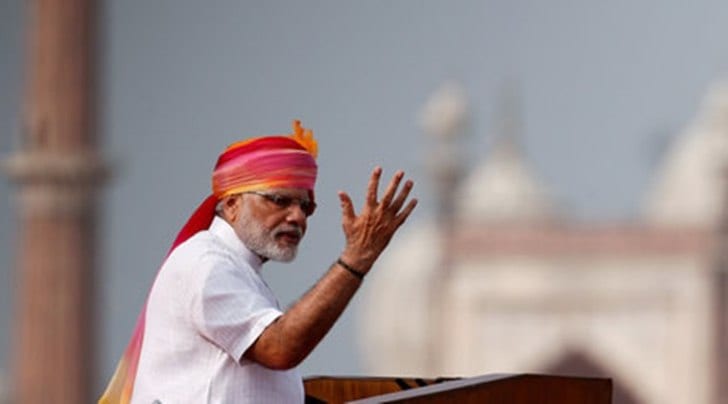
On its own terms, the prime minister’s speech was an artful, well delivered and energetic performance.
“Indeed it is a strange disposed time/ But men may construe things after their fashion/Clean from the purpose of the things themselves.”
Somehow this admonition by Cicero to Casca in Shakespeare’s Julius Caesar, on interpreting omens, seemed particularly apt in listening to Prime Minister Narendra Modi’s final Independence Day speech before the general elections. For, in an election year, a speech is like an omen; admittedly supporters and detractors will construe it after their own fashion. But it bears reminding that these speeches construct something whose divorce from reality is as striking as the claims they make.
On its own terms, the prime minister’s speech was an artful, well delivered and energetic performance — qualities his opponents ought not to underestimate. It was both a deception and a challenge, finely braided. It blanketed us with a fantasy of hope — where finally India was on the move, respected by all nations (apparently the prestige of the Indian passport has grown), free of corruption and not in the grip of a vice-like paralysis. The state was delivering every single thing India’s poor have been waiting for a long time to receive: Nutrition, roads, electricity, gas, housing, health care, minimum support prices, aircraft, airports, fibre optic cables, IITs and AIIMS, new technologies, toilets, and even an Indian citizen in space.
The nation was a model of social inclusion: The poor and the marginalised were at the centre of the state’s attention. Even Parliament set aside its unruly ways to pass legislation to empower other backward castes. Women were being empowered in every single sphere: From the sports field to the Supreme Court, from the armed forces to the kitchens. And society will show its resolve for combating the dark forces lurking within it by disseminating the news of the death penalty widely. Corruption is a thing of the past: Bad companies are quaking, middle men have disappeared. Honesty is again being recognised, the honest taxpayer is like a pilgrim earning both good works and helping the poor. All nepotism has stopped. Tough decisions are being made, a new ambition and scale is apparent. India is on the march everywhere. The entire spectrum of hopes and expectations is being realised.
This is an enchanting and vigorous defence of a government, effectively conveyed. Like all defences of a government record, it is a mixture of fact and fantasy and somewhat misleading in its attribution of credit and apportioning of blame. But from a political point of view, two questions about the speech are these. The first is a more prosaically empirical one: How does this narrative of hope and achievement sound in light of the experiences of the real economy? Does it carry any credibility or does it sound like a somewhat empty boast? Do people seriously believe that surgical strikes alone could have made our borders more secure? Economists and sociologists will discuss this. Will historical memories of comparative performance now change? The rhetorical power of the speech comes from a reference point of 2013, as if that was the date from which India became truly independent, forgetting the fact that it was almost a decade of 7.7 per cent growth under the UPA that made possible what came later.
But the second and more serious question is this. How did this fantasy of hope, painted in the colours of a nation marching to one tune and one purpose, completely blanket out the actual republic of fear, the lurking sense of dread that cannot be disguised by throwing some effective government schemes? If you thought the I-day speech would allay your fears, you are in a fool’s paradise. The giveaway moment was the point at which the PM talked about Kashmir: A promise to return to the Vajpayee formula of insaaniyat, Kashmiriyat and jamhooriyat. In 2014, this would have been a hopeful promise; in 2018, it is a reminder of the deep betrayal and incompetence in handling Kashmir.
But the speech’s biggest sign of arrogance was its key silences. The failure to mention demonetisation — a singular act of wilful economic hardship and diminution of GDP inflicted on a large scale — was one such omission. Don’t forget the UPA’s failures, but forget mine, he seemed to be saying. That act alone should make people nervous about the government’s credibility and intellectual sanity.
But the second biggest omission was any acknowledgement of the emerging republic of fear being crafted as we speak: Dissenters are at risk, minorities marginalised, new forms of violence are taking shape, a new lumpenism is becoming the norm under state patronage, institutions are being used to stifle freedom of expression, there is an impatience with checks and balances, and the slow spread of an insidious communal poison in society. Modi was not expected to acknowledge any of these lurking dangers, or even give a solemn commitment to fight them.
Rarely does an Independence Day speech touch upon such lurking threats to the republic. But in even scarcely acknowledging these burgeoning fears, Modi was doing two things. First, he was saying, all those of you who experience this fear are outside the pale of acknowledgment: You are simply refusing to get onto the fantasy of hope. Second, in not addressing those fears he was in effect signalling that the republic of fear is as much an acceptable prong of politics as the fantasy of hope he holds out.
The question is this: Is the experience of fear widespread enough to prick Modi’s bubble? Or has he succeeded in so diminishing us that the fundamental values of the republic do not matter to us, unless they affect us personally? And second, Modi can be still quite effective at weaving those fantasies of a state delivering us from all evils if we only had a strong leadership. He continues to position himself above interest, above identity, encompassing every progressive cause if it suits him, even as he creates the republic of fear.
The Opposition will need to face up to this challenge: What is it about them that makes Modi get away with this? Besides invoking the republic of fear, is there something more credible the Opposition can put beside Modi’s fantasies of hope and deliverance? This speech once again raises this question. It is far removed from reality, “quite clean from the purpose of things themselves”. But is that a weakness we can now see through? Or a strength, given that we can continue to project whatever hopes we want on him? For the sake of our independence, India should hope it is the former.
For all the latest Opinion News, download Indian Express App
© IE Online Media Services Pvt Ltd
More From Pratap Bhanu Mehta
- The nuances of 35AThere is a powerful argument for not abrogating the Article. But we must also think beyond the binaries on it. ..
- State and CapitalModi government has added an insidious dimension to the nexus. It is hidden in plain sight ..
- Mandela’s forgivenessIt seems alien in a world where resentment is not seen as imprisoning, freedom is freedom to hate...
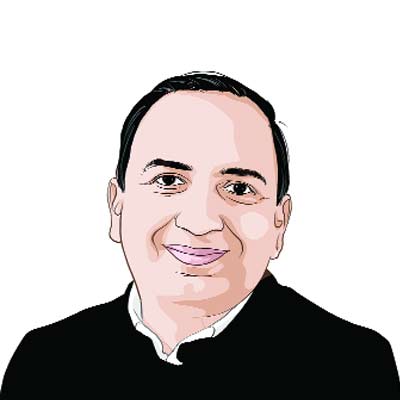
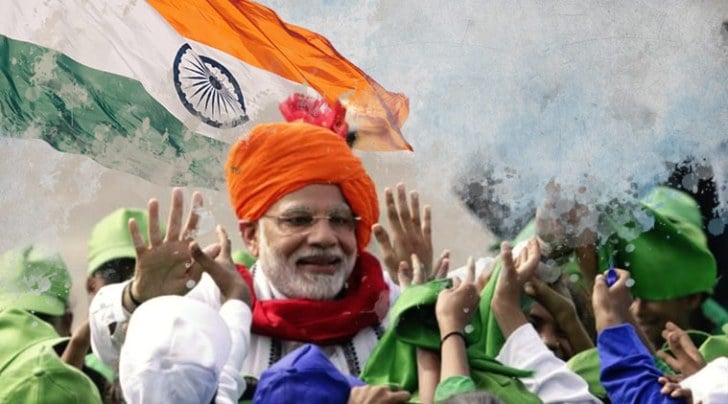 Priem Minister Narendra Modi greeting children on the occasion of Independence Day at Red Fort
Priem Minister Narendra Modi greeting children on the occasion of Independence Day at Red Fort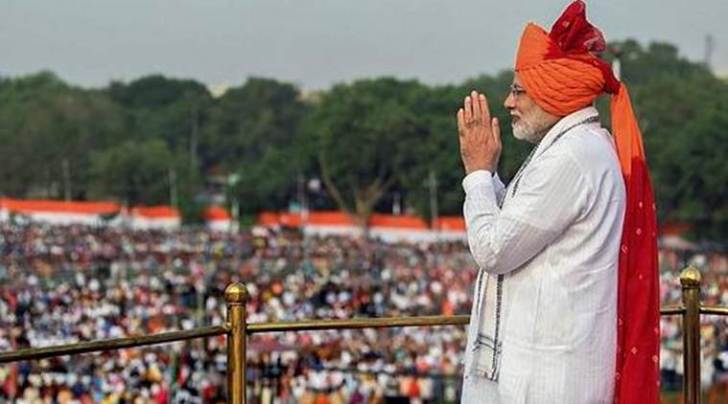 Modi after his Independence Day speech at Red Fort
Modi after his Independence Day speech at Red Fort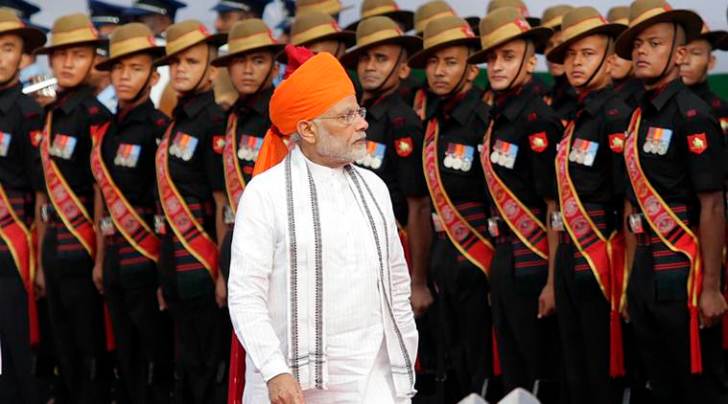 Prime Minister Narendra Modi taking Parade salute during Independence Day celebrations at the historic Red Fort in Delhi on Wednesday. (Express Photo By Praveen Khanna)
Prime Minister Narendra Modi taking Parade salute during Independence Day celebrations at the historic Red Fort in Delhi on Wednesday. (Express Photo By Praveen Khanna)





































No hay comentarios:
Publicar un comentario